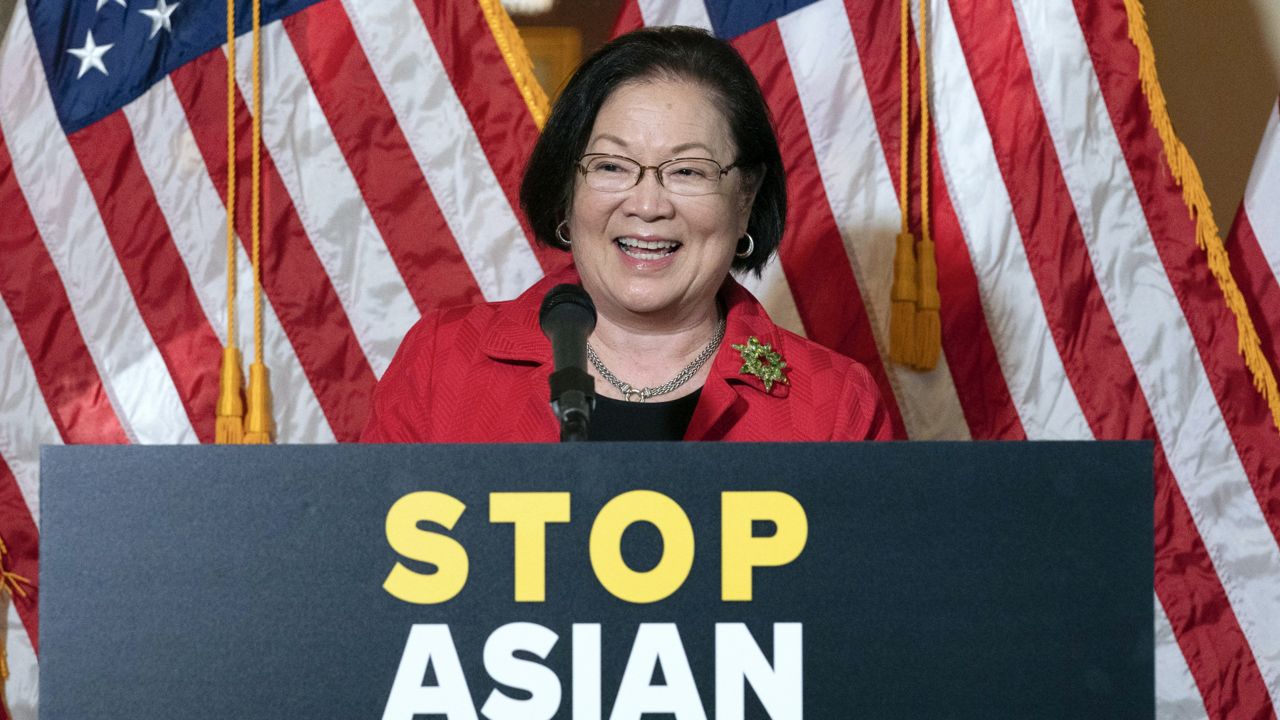The U.S. Senate voted 94-1 in favor of passing the COVID-19 Hate Crimes Act, a bill that aims to address the rise in hate crimes towards the Asian-American and Pacific Islander community amid the coronavirus pandemic.
Only Sen. Josh Hawley (R-MO) voted against the bill.
The legislation provides an ability for local and state law enforcement agencies to respond to hate crimes, assigns a point person in the Department of Justice to expedite review COVID-19-related hate crimes, and delivers guidance to combat discriminatory language related to the pandemic.
“This is not a controversial bill,” Sen. Mazie Hirono (D-HI), co-author of the legislation, said on the Senate floor ahead of Thursday’s vote. “It focuses federal leadership to investigate and report hate crimes and other incidents, and provides resources for our communities to come together to take a stand against intolerance and hate.”
Sen. Hawley, the lone opposition vote, said last week that the bill was “hugely broad,” arguing that it “mandates all this data collection in expansive categories that the federal government will collect.”
Several other senators voiced similar concerns, and worked alongside Democratic colleagues to introduce a number of amendments ahead of Thursday’s vote to make the language in the bill less expansive.
Sen. Hirono and Sen. Susan Collins (R-ME) worked together to make explicit reference to Asian Americans in the bill’s text, all “while retaining the bill’s core purpose to combat anti-Asian hate,” Hirono said in a statement on Wednesday.
The bill is the most substantive congressional response to what has been an alarming rise in racist sentiment against Asian Americans, fueled in part by derogatory language about the virus’ origins in China. Donald Trump, while president, played into that narrative with derisive nicknames for the virus.
A recent study showed that the use of anti-Asian hashtags skyrocketed on Twitter last year in the days after then-President Donald Trump used the term “Chinese virus” for the first time in a tweet. Trump also often used terms such as “China virus," or other variations on the same theme, during speeches and news conferences.
President Joe Biden applauded the Senate for passing the bill " by an overwhelming margin" in a statement released Friday, specifically noting the leadership of the Congressional Asian Pacific American Caucus.
"This critical legislation will bring our nation one step closer to achieving justice and equality for Asian American, Native Hawaiian, and Pacific Islander communities," Biden wrote. "And, I was happy to see the Senate add the bipartisan Jabara-Heyer NO HATE Act as an amendment, which will further our national efforts to stand strongly against acts of hate and violence."
"For more than a year, far too many Asian Americans have woken up each morning increasingly fearful for their safety and the safety of their loved ones," Biden continued. "They have been scapegoated, harassed, and assaulted; some have even been killed. It has been over a year of living in fear for their lives, as acts of anti-Asian bias and violence have accelerated from coast to coast — an unconscionable burden our fellow Americans have been forced to bear, even as so many Asian Americans serve their communities and our nation tirelessly on the front lines of the pandemic."
"Too often throughout our history, acts of hate and violence directed at Asian Americans have been met with silence," Biden added. "Our nation must stand together to speak out against hate, and declare unequivocally: These acts are wrong. They are un-American. And they must stop."
The bill now heads to the House of Representatives for a vote before it heads to President Biden to be signed into law. Senators urged the House to take swift action to get the bill passed.
Rep. Andy Kim of New Jersey thanked Senators "for sending unified message to AAPIs that we are seen/heard and supported," and pledged that the House will "move with haste" to send the bill to the president's desk.



